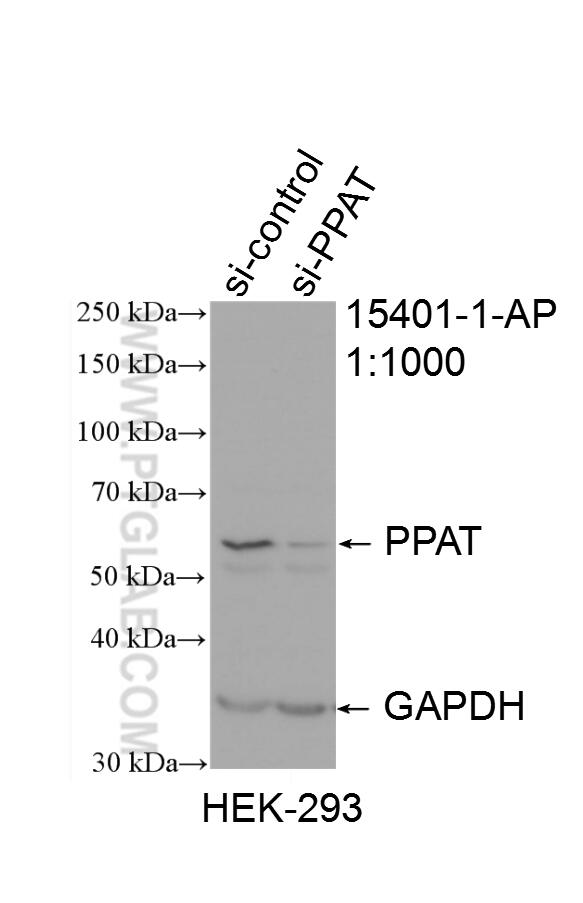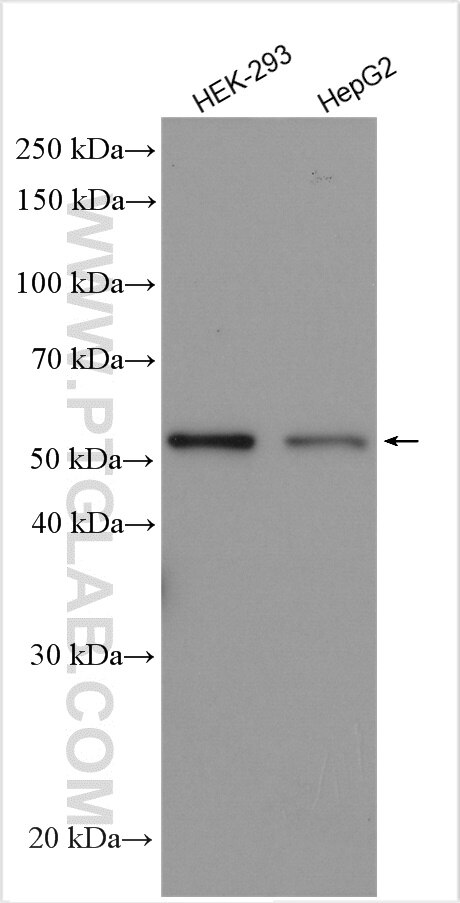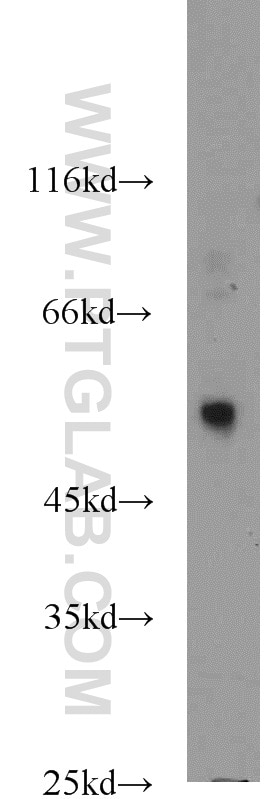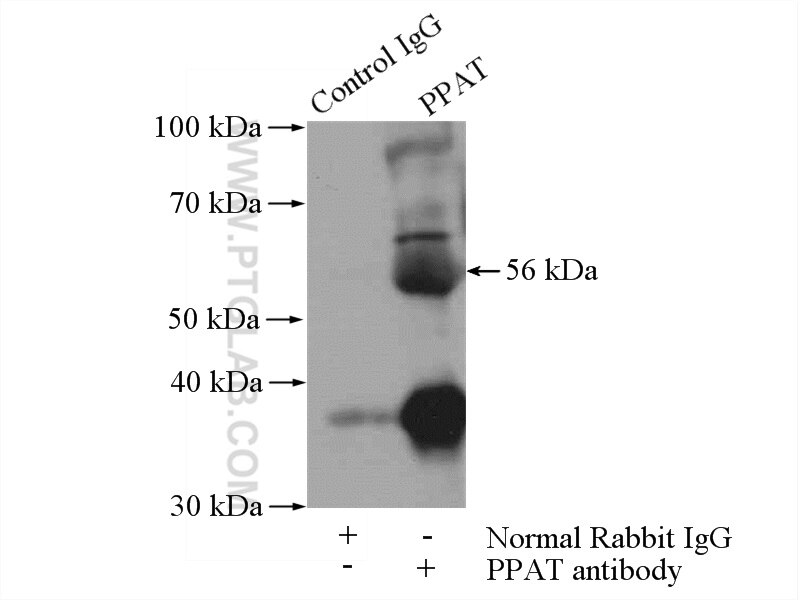Tested Applications
| Positive WB detected in | HEK-293 cells, HepG2 cells |
| Positive IP detected in | HepG2 cells |
Recommended dilution
| Application | Dilution |
|---|---|
| Western Blot (WB) | WB : 1:2000-1:10000 |
| Immunoprecipitation (IP) | IP : 0.5-4.0 ug for 1.0-3.0 mg of total protein lysate |
| It is recommended that this reagent should be titrated in each testing system to obtain optimal results. | |
| Sample-dependent, Check data in validation data gallery. | |
Published Applications
| KD/KO | See 3 publications below |
| WB | See 27 publications below |
| IHC | See 2 publications below |
Product Information
15401-1-AP targets PPAT in WB, IHC, IP, ELISA applications and shows reactivity with human, mouse, rat samples.
| Tested Reactivity | human, mouse, rat |
| Cited Reactivity | human, mouse, rat |
| Host / Isotype | Rabbit / IgG |
| Class | Polyclonal |
| Type | Antibody |
| Immunogen |
CatNo: Ag7618 Product name: Recombinant human PPAT protein Source: e coli.-derived, PET28a Tag: 6*His Domain: 178-517 aa of BC004200 Sequence: KEAPTAYSLLIMHRDVIYAVRDPYGNRPLCIGRLIPVSDINDKEKKTSETEGWVVSSESCSFLSIGARYYREVLPGEIVEISRHNVQTLDIISRSEGNPVAFCIFEYVYFARPDSMFEDQMVYTVRYRCGQQLAIEAPVDADLVSTVPESATPAALAYAGKCGLPYVEVLCKNRYVGRTFIQPNMRLRQLGVAKKFGVLSDNFKGKRIVLVDDSIVRGNTISPIIKLLKESGAKEVHIRVASPPIKYPCFMGINIPTKEELIANKPEFDHLAEYLGANSVVYLSVEGLVSSVQEGIKFKKQKEKKHDIMIQENGNGLECFEKSGHCTACLTGKYPVELEW Predict reactive species |
| Full Name | phosphoribosyl pyrophosphate amidotransferase |
| Calculated Molecular Weight | 57 kDa |
| Observed Molecular Weight | 50-56 kDa |
| GenBank Accession Number | BC004200 |
| Gene Symbol | PPAT |
| Gene ID (NCBI) | 5471 |
| RRID | AB_2166532 |
| Conjugate | Unconjugated |
| Form | Liquid |
| Purification Method | Antigen affinity purification |
| UNIPROT ID | Q06203 |
| Storage Buffer | PBS with 0.02% sodium azide and 50% glycerol, pH 7.3. |
| Storage Conditions | Store at -20°C. Stable for one year after shipment. Aliquoting is unnecessary for -20oC storage. 20ul sizes contain 0.1% BSA. |
Protocols
| Product Specific Protocols | |
|---|---|
| IP protocol for PPAT antibody 15401-1-AP | Download protocol |
| WB protocol for PPAT antibody 15401-1-AP | Download protocol |
| Standard Protocols | |
|---|---|
| Click here to view our Standard Protocols |
Publications
| Species | Application | Title |
|---|---|---|
Science mTORC1 induces purine synthesis through control of the mitochondrial tetrahydrofolate cycle. | ||
Cancer Cell Nrf2 redirects glucose and glutamine into anabolic pathways in metabolic reprogramming. | ||
Mol Cell ERK2 Phosphorylates PFAS to Mediate Posttranslational Control of De Novo Purine Synthesis. | ||
Adv Sci (Weinh) LEDGF Binds H3R17me2a Promoting De Novo Nucleotide Biosynthesis in SETD2 Mutant Clear Cell Renal Cell Carcinoma | ||
Nat Commun A shift in glutamine nitrogen metabolism contributes to the malignant progression of cancer. | ||










